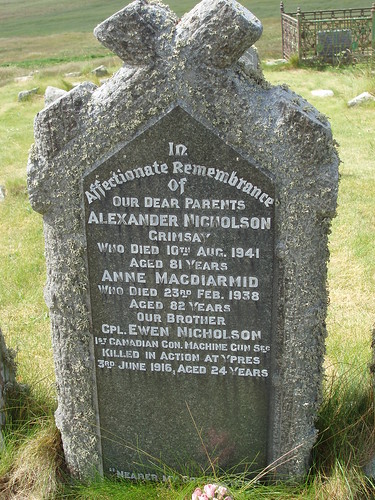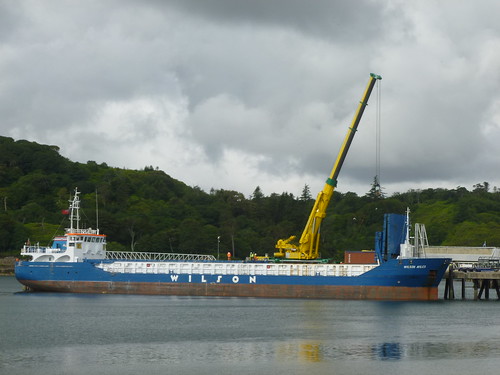
My Danish correspondent researched the fate of Ewen, displaying some very graphic and gruesome images of conditions on the frontline. I have looked into Ewen Nicholson's information and came out with the following:
Ewen Nicholson
Born: Grimsay, North Uist
Date of birth: 29 May 1892
Trade / calling: Labourer
Married: No
Volunteered at Valcartier on 23 September 1914
Age upon enlistment: 22 years 4 months
Height: 5 ft 10¼ in
Complexion: fresh
Eyes: light brown
Hair: brown
Religious denomination: presbyterian
Son of Alexander and Ann Nicholson, of Grimsay, Lochmaddy, North Uist.
Last known address in North Uist: 4 Aird nan Sruban Grimsay
Military unit: 7th Canadian Infantry (British Columbia Regiment)
Service number: 21065
Date of death: 3 June 1916 at the age of 24
Interred: Railway Dugouts Burial Ground, Sp Mem G. 29
In 1901, Ewen was 8 years old. His father Alexander was a crofter, 41 years of age, married to Ann. There were four other children in the family: Mary (12), John Archie (10), Alexander (5) and Andrew John Macalpine, age 1 month.
Five days after his 24th birthday, Ewen lost his life in fierce battles near Ypres. He was buried in one of the many cemeteries around the town.

